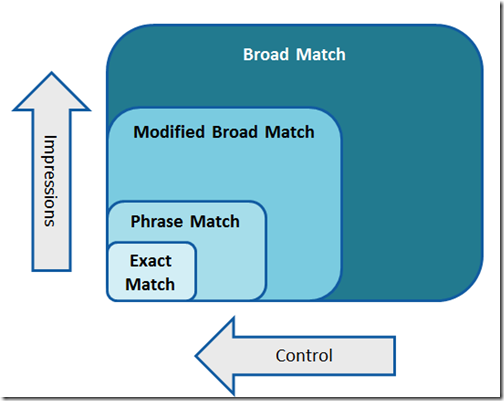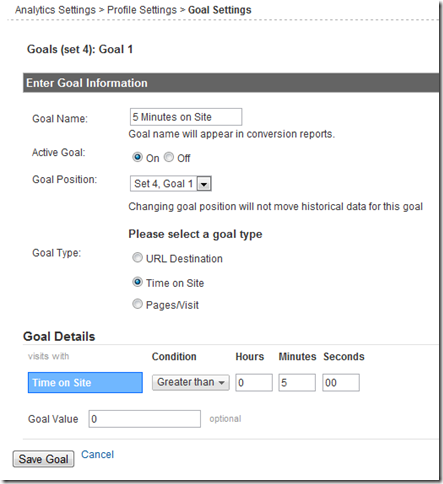How To Manage & Measure Local PPC Accounts
In my last column, I looked at some of the differences between small and large accounts as the best practices vary for each. In this column, we’re going to specifically focus on one of the most common small accounts: local accounts; and examine some of the best practices for this type of small account. A […]
In my last column, I looked at some of the differences between small and large accounts as the best practices vary for each.
In this column, we’re going to specifically focus on one of the most common small accounts: local accounts; and examine some of the best practices for this type of small account.
A local account is where there is a limited geographic area being served. When you combine a limited geographic reach with a small budget, you often run into problems trying to balance spending the budget on highly relevant keywords while getting a high enough return for the budget so that the advertiser is happy with the PPC account.
The information in this column comes from over a decade of working with local accounts. In some cases, they were direct clients. In other cases, the insights gleamed are from growing one of the largest authorized AdWords resellers userbase to where it was managing tens of thousands of local business.
So, at times the insights might seem harsh (many local business are bad about calling people back). It’s not meant to be harsh – its meant to be truthful.
Account Setup
The first step to working with a local business is to setup the account. The best practices of granular ad group and ad copy organization are true no matter what the account size is; however, there are some differences in the account setup that will vary based upon account size.
Match Types
When you examine match types, exact match should be the preference for many accounts. However, when you restrict the ad serving to a very small geography, you often end up with so few impressions that you can’t spend the budget.
Therefore, with local business accounts you will often end up utilizing a lot of modified broad match and in some instances even broad match.
With local accounts, you often have to give up some control in order to serve ads to enough users to make the account work well.
In many cases, you can’t add your best preforming keywords as exact match due to volume issues, so the best way to manage these broad match keywords is by making good use of negative keywords.
Ad Creation
One of the main benefits of a local account is that they are local. Consumers like to help local businesses and deal with companies in their geographic areas. The ads should utilize this benefit to their advantage by making sure that their location or service area is contained within the ad.
When you examine local businesses, they generally fall into one of two types:
- They come to you (plumbers, pizza delivery)
- You go to them (department stores, beauty salons)
When the searcher goes to the business, often the top goal is to make an appointment, contact the company, or get driving directions. The highlighted feature is usually the business location.
When the business goes to the searcher, the top goals are usually to schedule and appointment or to receive a phone call. The highlighted feature is often the phone number and ease of contact.
These two differences manifest themselves in ad extension usage. When the main goal is to showcase the business location, then the location extension is the best ad extension to use.
When the main goal is a phone call, then the call extension is generally the best one to use.
Of course, both of these account types can use sitelinks – a wonderful extension for all businesses to employ.
Mobile Ads
When a business is local, having a mobile strategy is one of the keys to success. The site should work on a mobile device. If it doesn’t (and most don’t) then create a small 1-3 page website that looks good on a phone. This doesn’t even have to be hard, mobile is so key to PPC growth, that Google is offering a one year free mobile website for any business.
In addition, make sure you are using mobile ads and call or location extensions in your mobile campaign. There is enough mobile inventory these days that some small business accounts are only spending their PPC dollars on mobile devices and are not advertising their desktop site.
Measuring Success
This is one of the hardest aspects to measure with a small business. The conversions are often few and far between; but if you can’t measure sales, then you cannot prove to the business how good you are at PPC, let alone present stats on why they should increase their current budget.
If you have easy-to-measure goals, such as driving direction, contact forms, and whitepaper downloads; then using the AdWords conversion tracker or setting up Google Analytics goals is a great idea.
Personally, I like using Google Analytics for small business measurement because once it is setup, then you can adjust the goals as you desire.
One of the challenges with working with local businesses is that they are often not tech savvy. This leads to months of discussion before they can put a simple AdWords conversion tracking code on a single page. If its going to take that much work to get a tag in place, use Google Analytics so you can make goal adjustments without the need for someone ever to touch the website again.
If the main goal is phone calls, then there are ways of tracking phone calls. If you are working with a company that can’t afford phone call tracking, then spend the $2.99 on a Skype number or get a Google Voice number that forwards to the business. While you won’t know what ads or keywords lead to phone calls, at least you will know that you are generating phone calls.
Now, just because you get them leads through contact forms or phone calls, it does not mean they are getting sales. This is where I find local businesses the most challenging – getting them to follow-up on contacts quickly.
The longer a lead sits without being contacted, the less likely you will ever be to convert that lead into a customer. However, if you stop your small business management at the lead phase, then you do not have any insight into this aspect of the business; especially if the business complains about the lead quality. If you wait a week to call all your contacts back, the lead quality will look poor even though it was initially great.
I find that sending all the leads into a CRM system where you can see how long it took them to contact the person, or if they even contacted the person, is a great idea.
Most local businesses are not going to refresh their CRM system all day to see if they have a new lead. So not only do you want to send the lead into a CRM system, you want that system to send out an email or SMS (or both) to the business so they know they need to follow-up on a new lead.
Sometimes, it can take quite a while to get the business to the point where you are getting good enough numbers to know how to bid and understand what is working.
While you are getting to that point, the other reason to use Google Analytics is that you can see interaction goals (bounce rates, time on site, pages per visit) to understand the traffic quality until you have better sources of data (actual sales or leads) to make bid decisions.
Ongoing Management
Ad Group Level Bidding
For most small accounts, you will never generate enough data to set keyword level bids. You will need to aggregate the conversions at the ad group level and set bids by ad group.
Because you need to do ad group level bidding, you really do need a very nice granular organization so that each keyword within an ad group is closely related. This will ensure that each keyword has roughly the same value since ad group level bids automatically set the same value per keyword.
Day Parting
Most businesses are not open 24 hours a day. If the business is focused on calls, and only has a person answering the call from 8-5 Monday to Friday; then you should consider using day parting (known as Ad Scheduling in the AdWords interface) so that the account is only driving calls during appropriate hours.
Conclusion
Just because the budget is small does not mean the account is easy to manage and show value. Local accounts come with their own unique set of challenges. They are challenges that can be overcome with the proper setup, management, and sales expectation. However, this is rarely the hard part of local account management.
The most difficult aspect for most local PPC managers is usually goal tracking. Having the visibility into the conversions data is essential, and its usually the hardest part of working with local accounts.
But you need sales data not just so you can optimize the account, but so the businesses feels they are getting their money worth from their PPC spend.
You can do a wonderful job of management, but if the company doesn’t have any visibility into the number of sales you are generating – the account will ultimately be closed by the business.
Now, while many local businesses aren’t savvy – some definitely are.
When you work with savvy local companies who are willing to go to extra lengths, as creating a landing page for each location by individual city (or who gets it enough to be willing to pay you to do this work); then working with local advertisers can be quite fun and enjoyable.
To make a local account successful, you need to balance the total inventory available with the account’s goals. This can be a tricky proposition with limited data, but if you can manage this juggling act – the local account should thrive.
Opinions expressed in this article are those of the guest author and not necessarily Search Engine Land. Staff authors are listed here.
Related stories
New on Search Engine Land

